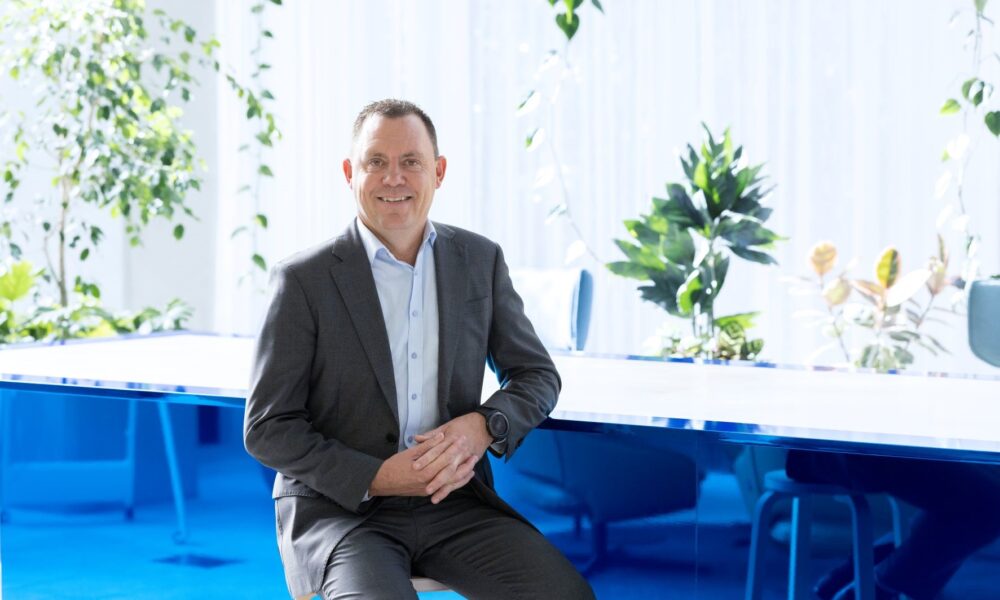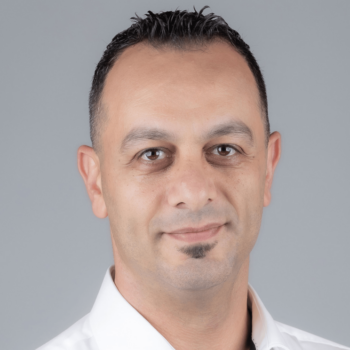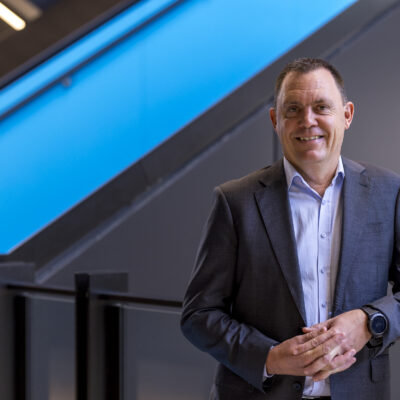How to grow market share in a competitive environment
Pictured above: Mark Callander.
Mark Callander, the CEO of 2degrees, gives insight on how to grow in the face of strong competition.
The Reserve Bank famously coined ‘the 2degrees effect’ as the impact our company had on the telecommunications industry.
Until the arrival of 2degrees, the telco market was dominated by a cosy duopoly of providers who dominated the market and contributed to New Zealand having some of the most expensive mobile phone plans globally.
Fifteen years ago, 2degrees roared into the market and we shook up the industry through a relentless focus on Kiwi customers: namely, competitive pricing and product innovation. The best part is that we’re not done yet. Our latest financial results showed that we continue to nab market share from our competitors across every key segment and we’re fully committed to ensuring that continues in the coming years.
But we don’t take anything for granted. We know that growth doesn’t happen by accident. It comes about only when you have a team driven by a shared set of objectives to push the business a little further and make it a little better.
Unfortunately, there’s no secret formula to growth, but in my experience, I have made a few observations along the way.
Question the status quo
As 2degrees has grown from an idea to a $1 billion enterprise, many have questioned whether we can still legitimately be called a challenger brand. To me, this has always seemed reductionist, a gross over-simplification of what the word ‘challenger’ actually means.
Take for example many of the large US tech companies. While, for example Apple and others they are dominant in the market, and have financial resources that far surpass their competitions, there’s still a hunger and enthusiasm that underpin many of their actions. It’s a question for all business leaders to answer: how do you retain what made you successful in the first place, and ensure that ethos continues no matter how successful you are.
Remember, that this doesn’t mean you should hook your brand onto every new fad that pops into the zeitgeist. Sticking AI to the back of your company’s name isn’t going to make an iota of difference to your success as an organisation. But using AI in a way that makes life a little easier for your customers or staff might just offer an incremental advantage over your competitor.
A challenger mindset that naturally questions the status quo places you in a better position to find those small advantages while your competitors are resting on their laurels.
Remember what you stand for
Much of the recent criticism focusing on a certain automotive company’s rebrand is attributable to the idea the company has lost a sense of what it once stood for. It’s a case of trading legacy for something that looks slick but doesn’t necessarily align with how customers have always seen the brand. The verdict is still out on which way this might go, but the surrounding debate has served as an important reminder for all brands to remember what they stand for.
There’s a familiar adage in business that your brand is simply a promise to your customers. For 2degrees, this promise has always been about Fighting forFair. The premise behind that was about offering New Zealanders fairer prices, but today we are also fighting in other ways. We are fighting to create a fairer online experience for young New Zealanders, we are fighting for better business experiences for Kiwi enterprises, and we are fighting for fairer representation in sport.
Respect your customers
Customer feedback is a gift. You can always learn something from it, and I firmly believe that people who give us their money deserve our respect. This concept of respect must apply all the way through the customer journey. It shouldn’t simply be reserved for new customers who have signed up in the last week. It should be extended to every customer – especially those who have given us years of loyalty.
In recent years, I have seen how technology sold as improvements can degrade that concept of respect. When businesses use technology to slow down customers or redirect them, it leads to nothing more than frustration and animosity. There’s nothing worse than an AI bot, whose sole reason for being is to create another barrier between the customer and the help desk.
Technology should always serve to make life a little easier. It’s about removing pain points and smoothing the path to an experience that the customer actually wants. Technology shouldn’t make us run in circles begging to speak to a human voice.
This is why at 2degrees, we increased our human tech team significantly over the last year through a combination of local hiring and offshore partnerships. And all of these tech providers are now also backed by AI tools that automatically transcribe phone calls and write simple reports. It means 2degrees customers get to speak to humans when they need to and when they want to. A little respect goes a long way.
Never accept the first draft
I never want to see a presentation that is 100 per cent complete. That might sound counter-intuitive, but we have adopted a concept called the ‘80 per cent draft’.
At other businesses, there’s this idea that everything has to be perfect when it’s presented to the executive so that you can move onto the next task.
The problem with that is two-fold. Firstly, it overlooks the fact that the process of honing and editing can often take as long as producing the product in the first place. In fact, the last 20 per cent of polishing can take even longer than putting your initial thoughts onto the page.
And secondly, if someone believes their document is in perfect shape then they aren’t going to be as willing to accept feedback.
Smart, productive organisations always create systems that allow for feedback so that you can reach the full potential offered by that final 20 per cent. It’s about recognising that there might be a different perspective or a slightly different way to do something.
Hire carefully
Everything I’ve written here so far leads to this point.
The processes and policies I’ve described here won’t work for everyone. In fact, I would venture to say that staff members who join us from our competitors will feel quite uncomfortable with how we approach work tasks when they first join. There’ll be a sense of uncertainty and trepidation, perhaps even some questioning of what they walked into.
These are all good signs, because they show that we approach the challenges of business differently from our competitors. We’ve built a culture best suited for us to live up to our brand promise while continuing to challenge our competitors.
However, this does mean you need to be quite deliberate in hiring team members who add to the culture rather than detracting from it. They need to be driven, hungry and eager to take the fight to the incumbents. And they have to be prepared to challenge (anyone, including me) rather than easing into those nicely defined grooves, but this only happens when you have a culture where people feel safe and valued to do so. If you hire the right people, the culture and enthusiasm becomes prolific, spreading from desk to desk throughout the organisation. Culture may start at the top, but it’s sustained by the people who do the hard work that keeps the organisation moving.







